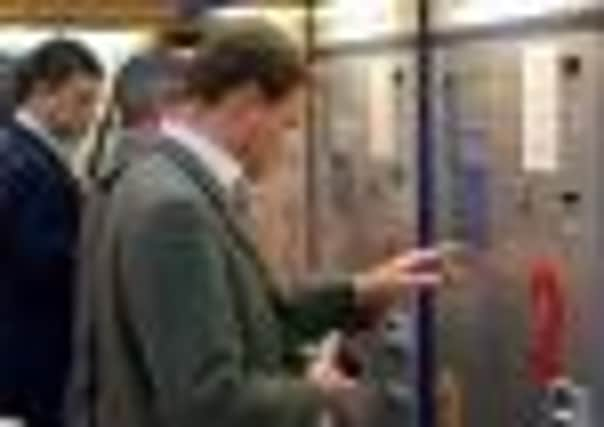Rail fares ‘too low’, says Whitehall review


Led by former Civil Aviation Authority chairman Sir Roy McNulty, the review team is expected to say that some rail fares are much lower than the market could, or should, bear.
The review is likely to call for a comprehensive review of fares, which are already due to go up in January 2012 by 3% above the RPI inflation rate of inflation for season ticket holders.
Advertisement
Hide AdAdvertisement
Hide AdThe McNulty review team believes that the current fare structures do not help sufficiently to manage peak demand and that a complex and sometimes unfair system should be made much simpler.
The review also reckons staffing on trains and in ticket offices can be significantly reduced and that UK rail staff wages are higher and productivity lower than in some European countries.
The Campaign for Better Transport said: “The review team are apparently sceptical about the need for, and affordability of, further big schemes to add to peak-hour rail capacity, especially in London.
“Their solution is apparently to try to encourage, through ‘price signals’, moves away from peak-hour travelling towards more off-peak travel and flexible working. Translated into practice, this is likely to involve even higher peak and shoulder-peak fares, and off-peak fares reduced.”
Advertisement
Hide AdAdvertisement
Hide AdBob Crow, general secretary of the RMT transport union, said: “McNulty and the Government will try and jack up fares, close ticket offices and sack staff while the train operators are laughing all the way to the bank.
“Slashing funding while ring-fencing profits will mean passengers pay higher fares for travelling on creaking, overcrowded trains on unsafe tracks.”
The review has found that rail costs in Britain should be 20%-30% lower and that costs need to be reduced by up to 35% to match some European countries.
Barriers to efficiency include the fragmentation of the railways, with train companies running services but Network Rail (NR) responsible for track and stations, and extensive government involvement in the rail industry.
Advertisement
Hide AdAdvertisement
Hide AdThe review also reckons other barriers to efficiency include the actual set-up of NR, its relations with train companies, and uncertainty about who is in charge of the railways.
The McNulty team is likely to recommend the setting up of a Rail Delivery Group which would take over some of NR’s functions.
The review team also reckons that vertical integration - where train companies run services and are also responsible for their section of track - could be possible on a number of routes, including services in Scotland, Wales, southern England and East Anglia.